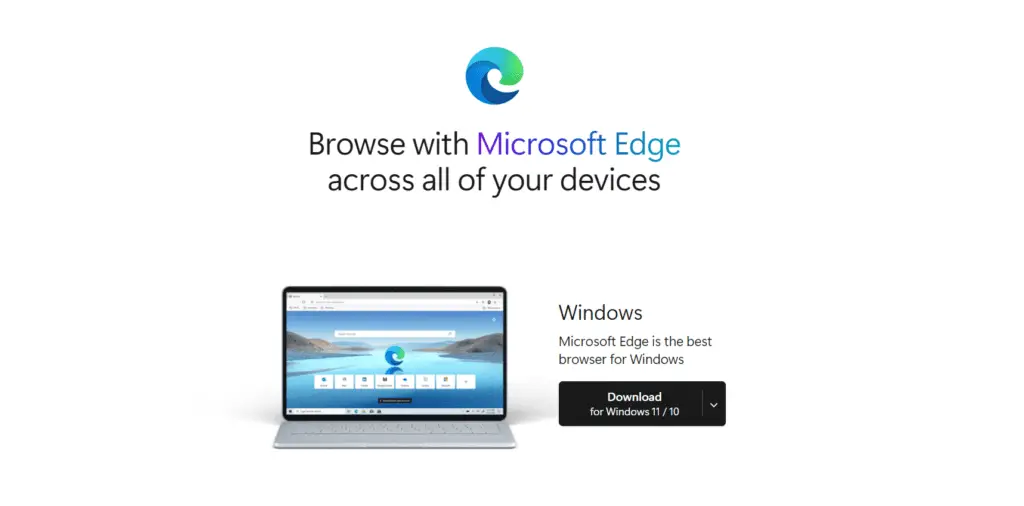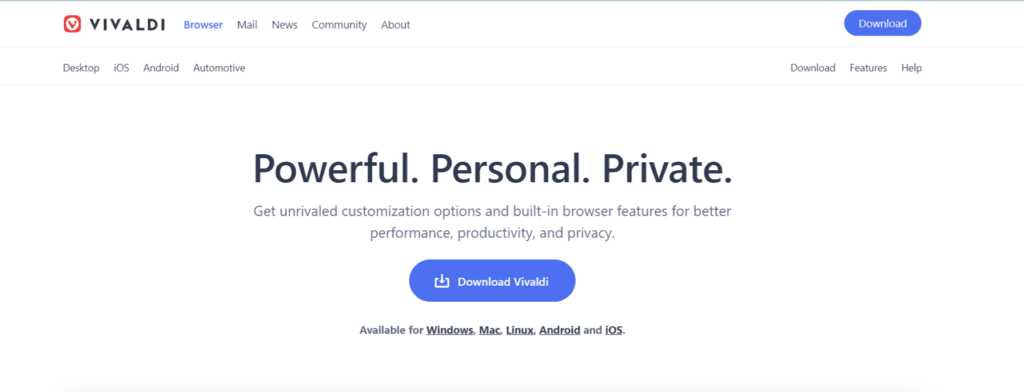Find out which browsers use the least memory in 2024 with our top choices. Compare lightweight options like Chrome, Firefox, Brave, and more to boost overall performance and keep RAM on any device.
In 2024, selecting a browser with less memory is essential for smooth performance. Memory-green browsers save your device from slowing down, particularly when browsing multiple tabs or using heavy internet apps.
High memory intake can drain battery life and affect typical productivity. With more users multitasking and relying on browsers for everything, finding one that uses less RAM can improve both speed and efficiency.
In this post, we’ll explore which browsers assist you in getting the maximum out of your device without hogging resources.
What Affects Browser Memory Usage?

Several factors affect how much memory your browser consumes, and information about them allows you to pick out the high-quality one for your needs. Modern browsers manage multiple strategies, extensions, and tabs, which can cause vast memory usage.
Some browsers are optimized for performance, while others are aid-heavy due to built-in functions or lousy optimization. Here’s what you have to look out for while thinking about a browser’s reminiscence intake:
- Number of open tabs: More tabs suggest extra reminiscence usage.
- Extensions and add-ons: Extra features frequently consume reminiscence within the history.
- Browser techniques: Some browsers run separate procedures for each tab, increasing memory wishes.
- Caching and data storage: Storing information quickly can eat memory.
- Background activities: Browsers doing walk updates or heritage syncing can use more RAM.
- Rendering complicated websites: Rich media content or interactive websites also increase memory intake.
- User settings: Customization and personalization settings can also affect overall performance.
You can better optimize your browser’s reminiscence usage by coping with these factors.
Top 7 Browsers Compared by Memory Usage in 2024
Here’s a comparison of the top 7 browsers based on their memory consumption in 2024. This data can help you choose the best browser for your needs, depending on your device’s performance and usage habits.
| Browser | Memory Usage (MB) | Key Feature | Best for |
|---|---|---|---|
| Google Chrome | 500 – 600 MB | Fast, widely compatible | Heavy multitasking |
| Mozilla Firefox | 400 – 500 MB | Customizable, privacy-focused | Privacy-conscious users |
| Microsoft Edge | 350 – 450 MB | Integrated with Windows | Windows users |
| Safari | 300 – 400 MB | Optimized for Mac | Mac users |
| Opera | 350 – 500 MB | Built-in ad blocker | Ad-heavy browsing |
| Brave | 300 – 400 MB | Privacy-focused, ad-blocking | Privacy, minimal tracking |
| Vivaldi | 400 – 550 MB | Highly customizable | Customization lovers |
Which Browsers Use the Least Memory in 2024?
A few browsers stand out for their performance when it involves memory usage. Here’s a breakdown of the most popular browsers and the way they were carried out in 2024:
1. Google Chrome

Google Chrome is known for its speed and flexibility but is also notorious for its excessive memory consumption. With every tab running as a separate process, Chrome can easily use 500-600 MB of memory, specifically when multiple tabs or extensions are running.
However, Chrome excels in performance and compatibility, making it an excellent preference for internet users. For customers who need a fast browser and don’t mind excessive memory utilization, Chrome stays a pinnacle option.
2. Mozilla Firefox

Firefox offers a more privacy-targeted technique while preserving memory utilization achievable. It consumes around four hundred-500 MB, depending on the range of open tabs and set-up add-ons.
Firefox is famous for its high degree of customization and strong privacy controls, making it best for users who prioritize privacy without sacrificing excessive overall performance.
Although it uses more reminiscence than some lighter browsers, it balances overall performance and safety nicely.
3. Microsoft Edge

Edge has progressed extensively, seeing that switching to the Chromium engine. It uses 350-450 MB of reminiscence, making it greener than Chrome.
Edge is fully incorporated into Windows, giving it a slight performance gain on Windows devices. With built-in equipment like vertical and sleeping tabs, Edge is optimized for low memory intake, specifically for users who keep many tabs open.
It’s a strong choice for Windows customers searching for a more efficient browser.
4. Safari

Safari is the default browser for Apple devices and is optimized for macOS, consuming approximately three hundred-400 MB of reminiscence. Apple’s cognizance of the power efficiency approach Safari is one of the most lightweight browsers, especially for Mac users.
It’s known for being faster and more energy-efficient on Apple hardware. However, Safari is only sometimes as customizable as Firefox or Chrome. However, it remains an exceptional alternative for those searching for a quick and reminiscence-efficient browser on Mac.
5. Opera

Opera strikes an excellent stability between overall performance and aid efficiency, using 350-500 MB of reminiscence. Its integrated ad blocker and VPN contribute to memory usage by using bloodless scripts and trackers.
Opera is splendid for customers who need an all-in-one answer with built-in privacy functions. For customers who browse advert-heavy websites, Opera’s capacity to dam ads can also lessen the burden of reminiscence.
6. Brave

Brave is a privacy-centered browser that consumes 300-four hundred MB of memory. It blocks advertisements and trackers by default, resulting in quicker web page loads and decreased reminiscence usage. Brave suits users who need privacy and do not need 1/3-birthday celebration extensions.
Its efficient use of sources makes it an excellent preference for users looking to reduce memory consumption while protecting their data.
7. Vivaldi

Vivaldi is designed for vital customers who fee customization and consumes approximately four hundred-550 MB of memory. While it uses more reminiscence than some competition, it offers a relatively customized surfing experience.
Users can personalize nearly every element of Vivaldi, from the interface to keyboard shortcuts. Despite the higher reminiscence usage, Vivaldi’s flexibility makes it a fave for users who need complete manipulation over their surfing.
Is Microsoft Edge a Low-Memory Browser?
Microsoft Edge is considered a low-memory browser, particularly compared to Google Chrome. Since switching to the Chromium engine, Edge has been optimized to use much less memory, commonly consuming around 350-450 MB.
One important function that allows Edge to stand out is its “sleeping tabs” functionality, which robotically puts inactive tabs to sleep, considerably decreasing memory utilization. For users who frequently keep many tabs open, this selection can enhance performance and conserve machine assets.
Edge is likewise tightly incorporated with Windows, permitting it to perform higher on Windows gadgets with fewer helpful resource demands.
While now not the lightest browser available, Microsoft Edge is a solid option for users seeking stability in functionality and coffee reminiscence consumption, especially on Windows-based systems.
The Best Browsers for Low-RAM Devices
Choosing a lightweight browser becomes essential for overall performance when working with a device with constrained RAM. Here’s a look at the excellent alternatives for low-RAM devices:
1. Brave

Yes, Brave is one of the excellent browsers for low-RAM devices. With its built-in advert and tracker blockers, Brave reduces the reminiscence used by scripts and other heritage tasks.
It generally consumes around 300-four hundred MB, making it a stable preference for gadgets with limited reminiscence. Brave additionally ensures faster page load instances, which reduces the overall aid stress on your system.
If privacy and overall performance are priorities, Brave is a terrific option.
2. Safari (Mac Only)

Safari is optimized primarily for Apple hardware, making it an excellent choice for Mac users with low RAM. Its efficient, functional resource control guarantees it simplest consumes around three hundred-four hundred MB, relying on utilization.
Safari is known for its speed and power efficiency, translating into lower memory consumption. While it’s the most straightforward option for MacOS, Safari is the most pleasant option for users with older Mac gadgets.
3. Opera

Yes, Opera is another precise choice for low-RAM devices. With integrated capabilities like ad-blocking and an unfastened VPN, Opera reduces unnecessary reminiscence intake. It typically uses 350-500 MB, but the advert blocker helps decrease the load on low-spec devices.
Opera is also green for multitasking, as its lighter footprint makes it run smoother on structures with confined RAM. The browser’s customization options also let you streamline it for better overall performance on older devices.
4. Vivaldi

No, Vivaldi, while function-wealthy, isn’t the first-class option for low-RAM gadgets. It consumes extra reminiscence, around 400-550 MB, because of its heavy customization functions and superior capability.
While it offers an outstanding consumer experience for folks who need flexibility, Vivaldi is superior to higher-end devices.
If you have limited RAM, a lighter browser like Brave or Opera could be a better choice for the highest-quality performance.
How Browser Extensions Affect Memory Usage
Yes, browser extensions can appreciably affect memory utilization. While extensions add beneficial features and enhance browsing, everyone runs extra tactics that consume RAM.
The more extensions you install, the higher the memory consumption. Popular browsers like Chrome, Firefox, and Edge regularly see an upward push in memory usage as customers add extra extensions for advert blocking off, password control, or productivity.
For instance, walking five or extra extensions in Chrome can, without problems, add 100-200 MB to your overall reminiscence usage. Some extensions, like video downloaders or content material blockers, are more useful regarding resource depth than others.
It’s essential to control extensions cautiously, preserving the essential ones lively and disabling or getting rid of those you don’t frequently use. Limiting the variety of active extensions, you could assist in optimizing your browser’s overall performance, particularly on low-RAM gadgets.
Which Browsers Use the Least Memory for Heavy Tasks?
When performing heavy obligations like video conferencing, online gaming, or jogging multiple internet apps, choosing a browser with low memory consumption is crucial. Here’s a take a look at how six famous browsers take care of heavy tasks:
1. Google Chrome
Chrome tends to use more memory for heavy obligations, particularly when going for walks, using multiple tabs, or using web apps. However, its separate tab approach ensures stability, even though one tab crashes. While fast, Chrome can devour 500-600 MB, making it much less ideal for low-RAM devices.
2. Mozilla Firefox
Firefox plays better than Chrome in terms of reminiscence usage for heavy responsibilities. It consumes around four hundred-500 MB; however, it manages sources extra efficiently using proscribing reminiscence leaks.
Firefox’s balance under heavy utilization makes it a perfect choice for multitaskers who need a balance of speed and reminiscence efficiency.
3. Microsoft Edge
Edge excels at managing memory during heavy tasks because of its “sleeping tabs” feature. This feature reduces memory utilization by putting inactive tabs to sleep, freeing up resources for energetic tasks.
With memory utilization around 350-450 MB, Edge is green when handling heavy activities, particularly on Windows devices.
4. Safari
Safari is specially optimized for Mac users and handles heavy obligations correctly, using about three hundred-400 MB. Its strong performance and optimized processes make it a pinnacle preference for the ones running aid-heavy duties like video conferencing on Mac gadgets.
Safari maintains low reminiscence usage while maintaining clean performance.
5. Opera
Opera performs properly for heavy duties due to its integrated advert blocker, which reduces the burden of reminiscence by blockading unnecessary scripts.
It uses around 350-500 MB; however, Opera’s efficiency can prevent memory overload for users managing advert-heavy websites or running multiple web apps.
6. Brave
Brave is a strong contender for managing heavy obligations without the usage of excessive reminiscence. By blocking advertisements and trackers by default, Brave uses less RAM than maximum browsers, typically around 300-four hundred MB.
This makes it best for aid-extensive obligations like video streaming or gaming while preserving excessive privacy requirements.
Mobile Browsers: Which Use the Least Memory?

On cell gadgets, reminiscence performance is prime for clean surfing, particularly with restricted RAM. Let’s explore seven cellular browsers and how they handle reminiscence usage.
1. Google Chrome (Mobile)
Chrome on cellular gadgets tends to apply more memory than other browsers, around a hundred and fifty-250 MB.
While it offers first-rate sync features and performance, its reminiscence intake can motivate slower overall performance on low-end gadgets. However, it’s surprisingly optimized for multitasking and complicated websites.
2. Safari (iOS)
Safari is the default browser for iPhones and is tremendously optimized for Apple’s ecosystem. It commonly consumes around 120-one hundred eighty MB of reminiscence, making it one of the lightest cell browsers.
Safari’s efficiency helps preserve battery existence and continues easy performance on iOS gadgets.
3. Firefox (Mobile)
Firefox on a cell is more lightweight than its computing device version, using about 130-two hundred MB. It’s an excellent desire for customers who want robust privacy functions without sacrificing overall performance.
Firefox’s memory management on cellular makes it a strong choice for low-reminiscence devices.
4. Microsoft Edge (Mobile)
Edge on cell consumes 140-220 MB of memory, making it fairly lightweight. It offers similar capabilities to its computer counterpart, including syncing and privacy equipment.
Edge is nicely optimized for Windows environment users who want seamless cross-device capability.
5. Opera Mini
Opera Mini is specially designed for low-memory devices, using the best 50-one hundred MB of reminiscence.
Its facts compression era drastically reduces reminiscence intake, making it ideal for customers with restrained RAM or the ones surfing on slower networks. Opera Mini is one of the lightest mobile browsers available.
6. Brave (Mobile)
Brave’s cellular version uses around 100-one eighty MB, making it a green choice for privateness-targeted customers. By routinely blocking advertisements and trackers, Brave consumes much less memory while ensuring rapid page load instances.
It’s a superb desire for users wanting each performance and privacy.
7. Dolphin Browser
Dolphin is any other lightweight cell browser, eating about twenty-one hundred seventy MB of memory. It’s acknowledged for its customization features and fast overall performance.
While now less famous than Chrome or Safari, Dolphin offers an alternative for customers looking for a customizable, low-memory mobile browser.
Which Browser Uses the Least RAM on Mac?

Mac customers benefit from browsers optimized for macOS, but RAM usage can vary among them. Let’s examine seven popular browsers and how they cope with RAM on Mac.
1. Safari
Safari is the go-to browser for Mac customers, built mainly for Apple devices. It uses around 300-four hundred MB of RAM, making it one of the maximum green browsers on macOS.
Safari is designed to limit RAM usage while maintaining excessive overall performance and power performance, making it best for multitasking on Mac.
2. Google Chrome
Chrome on Mac uses more RAM than Safari, averaging 500-600 MB. Its performance is robust, but Chrome’s multi-method structure can quickly result in better reminiscence consumption, mainly while walking several tabs. Despite this, it remains famous for its speed and extension help.
3. Mozilla Firefox
Firefox on Mac is a stable alternative to Safari, using about 400-500 MB of RAM. It balances performance and memory efficiency, making it a terrific choice for customers who want a browser that’s both privacy-targeted and resource-efficient on macOS.
4. Microsoft Edge
Edge plays well on Mac, using around 350-450 MB of RAM. Since transferring to the Chromium engine, it has become more efficient, and its seamless integration with Microsoft offerings makes it a stable choice for those who use both Windows and macOS.
5. Brave
Brave is optimized for privacy and consumes approximately 300-400 MB of RAM on Mac. Integrated ad and tracker blocking reduces memory load while preserving rapid page loads. Brave is suitable for users who prioritize performance and privacy on Mac devices.
6. Opera
Opera uses about 350-500 MB of RAM on Mac, which is sufficient for functions like its built-in advert blocker, which reduces unnecessary aid intake.
For customers who want a customizable experience with green memory utilization, Opera is a good choice.
7. Vivaldi
Vivaldi, recognized for its customization capabilities, uses around 400-550 MB of RAM on Mac. While it has more than a few specific capabilities, Vivaldi’s reminiscence consumption is better than other lightweight browsers.
It’s quality acceptable for users who cost customization over memory performance.
Conclusion:
Choosing the proper browser with the least memory depends on your device and how you use it. For Mac users, Safari stays the most memory-green, while Brave and Firefox offer tremendous options with stable privacy functions.
Google Chrome, although feature-rich, tends to devour more RAM, making it less suitable for low-residence gadgets. However, it is still a top pick for heavy multitasking and extensions.
Edge stands out for its performance on Windows, especially with its “napping tabs” function, which decreases memory utilization substantially.
For mobile users, lightweight alternatives like Opera Mini excel in statistics compression and occasional memory consumption.
Ultimately, the first-class browser for you depends on your precise needs—whether it’s multitasking, privacy, low RAM consumption, or cell overall performance. Choose accurately, primarily based on your system’s abilities and browsing habits, to get the maximum from your device in 2024.
FAQs
Browsers like Brave, Safari, and Firefox are among the top choices for using the least memory in 2024.
Brave is excellent for privacy-conscious users, while Safari is optimized for macOS, making it extremely efficient on Apple devices
Opera Mini is known for consuming the least data, thanks to its data-saving mode that compresses pages and blocks ads.
This makes it an excellent choice for users on limited data plans or slow networks.
For both desktop and mobile, Brave and Opera Mini are among the lightest browsers, using less RAM and data while still offering fast performance and useful features.
Safari and Microsoft Edge are great options for minimal lag, especially on their respective platforms (Mac for Safari, Windows for Edge).
Both are optimized for system performance, ensuring smooth and responsive browsing experiences.
Yes, Firefox is designed to use less RAM compared to Chrome. It typically consumes around 400-500 MB, depending on the number of open tabs and installed add-ons, making it more memory-efficient for users looking to save on resources.
Yes, Google Chrome is known to consume more memory than other browsers, especially with multiple tabs or extensions running.
It can use 500-600 MB or more, which can slow down low-RAM devices.








3 thoughts on “Top 7 Picks for 2024: Which Browsers Use the Least Memory?”